
Investing in Climate Action for Jobs, Health, and Equity webinar #7: Investing in Farmers for Nature-Based Carbon Sequestration – 28 July 2022
The Clean Coalition was a partner organization for this webinar, which took place on 28 July 2022 at 10am.
The head of the United Nations called the UN’s latest IPCC report a “code red” warning for humanity. His message: act on climate change now or pay the price for years to come. In the midst of record-breaking fires, drought, floods, and extreme heat, it is clear that massive investments will be required to ensure a climate-safe future for California. Creating a prosperous, zero-carbon economy for the state presents enormous opportunities, including economic and job benefits, community benefits through creating more equity and resilience and improving health outcomes, and through protecting our agricultural industry and restoring wildlands.
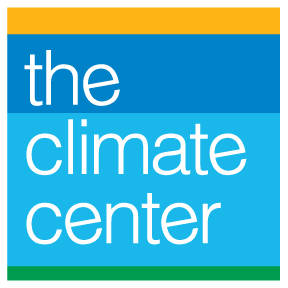
The Climate Center’s Investing in Climate Action for Jobs, Health, and Equity webinar series will bring together diverse experts and policymakers to discuss how much we need to invest, what the areas are for priority for investment, and what returns can we expect.
See below for more information on the seventh webinar of the series.
Webinar #7: Investing in Farmers for Nature-Based Carbon Sequestration
Thursday, 28 July, 2022 at 10am to 11:30am PST
Farmers and ranchers can and should be a big part of the solution to the climate crisis. Climate-smart agricultural practices can sequester significant amounts of carbon while also improving soil health, increasing water retention in the soil, and making the land more drought-resilient and productive. On this webinar, policymakers, conservationists, and farmers will discuss the transition towards more resilient farming and ranching practices and what investments are needed to scale climate-smart agricultural practices in a way that supports the growers of our food.
+ Click here for more information
Presenters
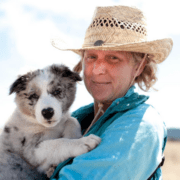
Patricia Hickey is the Managing Director at the Carbon Cycle Institute. Over the course of her career, Patricia has worked for universities, conservation districts, and agricultural land trusts to advance natural resource conservation and the development and adoption of innovative conservation programs. She has served in executive director roles for the Washington State Association of Conservation Districts and the Mendocino County Resource Conservation District, and as the Agricultural Program Director for the Gold Ridge Resource Conservation District. While serving as the Stewardship Director for Marin Agricultural Land Trust, Patricia was a Steering Committee member of the Marin Carbon Project. She brings 16 years of experience working directly with the agricultural community on climate adaptation and mitigation.
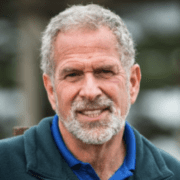
Albert Straus is the founder and CEO of Straus Family Creamery–the first 100% certified organic creamery in the United States. Albert has been a leader in sustainable organic farming practices for many decades. He is a strong advocate for organic, non-GMO dairy production, environmental stewardship, family farms, and the true cost of production. At his dairy–Straus Dairy Farm–the first certified organic dairy west of the Mississippi River–Albert has invested in climate-positive dairy practices, creating a pathway to a carbon-neutral dairy farming model by 2023. He is extending this model to Straus Family Creamery’s suppliers by 2030. Fast Company named Albert one of 2020’s Most Creative People in Business. In 2019, the Marshall creamery became the first in the world to receive TRUE® Zero Waste Certification.
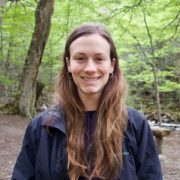 Emilie Winfield is the Regional Coordinator for the North Coast Soil Hub, where she works to increase understanding of how to manage agro-ecosystems for soil health and advance adoption of climate-friendly practices. Emilie works with local resource conservation districts, agricultural producers and other regional partners to provide education opportunities for learning about soil health and carbon farming, bring in resources to support planning and implementation, and overcome barriers to adoption. Emilie has a B.S. in Plant Sciences from UC Santa Cruz and an M.S. in Environmental Policy and Management from UC Davis. Prior to joining the North Coast Soil Hub, Emilie managed organic farms, provided training on sustainable agriculture, and participated in research on plant-microbe interactions, root systems architecture in soil, and the impacts of soil amendments on working lands.
Emilie Winfield is the Regional Coordinator for the North Coast Soil Hub, where she works to increase understanding of how to manage agro-ecosystems for soil health and advance adoption of climate-friendly practices. Emilie works with local resource conservation districts, agricultural producers and other regional partners to provide education opportunities for learning about soil health and carbon farming, bring in resources to support planning and implementation, and overcome barriers to adoption. Emilie has a B.S. in Plant Sciences from UC Santa Cruz and an M.S. in Environmental Policy and Management from UC Davis. Prior to joining the North Coast Soil Hub, Emilie managed organic farms, provided training on sustainable agriculture, and participated in research on plant-microbe interactions, root systems architecture in soil, and the impacts of soil amendments on working lands.
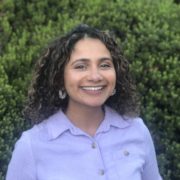 Baani Behniwal joined The Climate Center in June of 2022 as the Natural Sequestration Initiative Manager. In this role, she leads the Center’s work on advancing nature-based carbon sequestration solutions to fight the climate crisis while protecting our natural lands and delivering a multitude of co-benefits for both the environment and affected communities. Throughout her career, Baani has worked as a community organizer, organic farm apprentice, and registered lobbyist. The focus of her work and studies have ranged from sustainable development and climate-smart agriculture to the circular economy. She holds a dual M.A. in International Affairs and Natural Resources and Sustainable Development from American University and the UN-mandated University for Peace, as well as a B.S. in Cognitive Science from the University of California, Irvine.
Baani Behniwal joined The Climate Center in June of 2022 as the Natural Sequestration Initiative Manager. In this role, she leads the Center’s work on advancing nature-based carbon sequestration solutions to fight the climate crisis while protecting our natural lands and delivering a multitude of co-benefits for both the environment and affected communities. Throughout her career, Baani has worked as a community organizer, organic farm apprentice, and registered lobbyist. The focus of her work and studies have ranged from sustainable development and climate-smart agriculture to the circular economy. She holds a dual M.A. in International Affairs and Natural Resources and Sustainable Development from American University and the UN-mandated University for Peace, as well as a B.S. in Cognitive Science from the University of California, Irvine.

